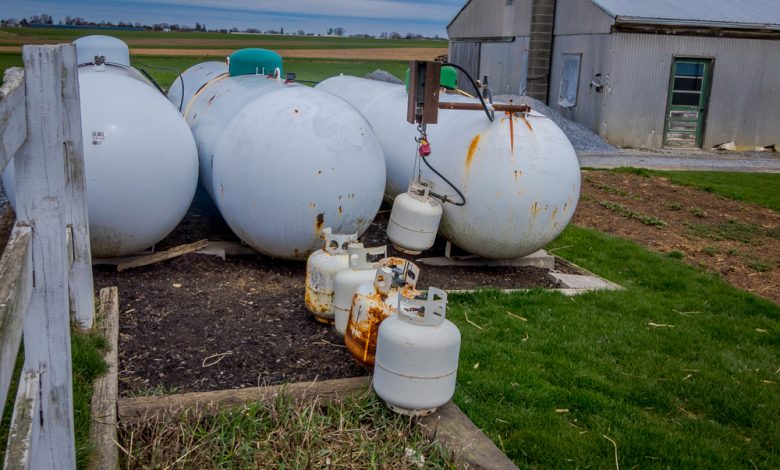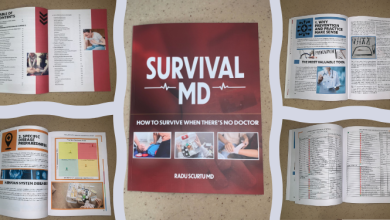How the Amish Would Respond to Grid Down – Survivopedia

When the lights go out across America, the Amish would barely flinch. While the rest of the country would be scrambling for generators and batteries, they would hitch their horses, light the lamps, and carry on as usual. Their lives already run on a system that doesn’t depend on the grid.
There are about a quarter million Amish spread through nearly thirty states. They farm, build, trade, and worship without electricity. They are not anti-technology; they simply refuse anything that harms their community or makes them dependent on outsiders. Ironically, that mindset has made them the most prepared people in America for a nationwide blackout.
This is what a grid-down world would look like through Amish eyes, and what the rest of us can learn from them.
If the power grid fails, cell towers go silent and the internet dies. For most Americans, that would cut off contact with the outside world. For the Amish, it would change almost nothing.
Amish homes do not have telephones. A few families might share a single phone in a small wooden booth at the end of the lane. Calls are made only when truly necessary. The rest of the time, communication is face-to-face. Neighbors visit each other. News travels by letter, wagon, or word of mouth at Sunday church gatherings.
When the grid goes dark, that old pattern will keep right on working. They already have a local network built on trust and proximity, not electronics.
Preppers can follow that model. Build real relationships with your neighbors. Set up in-person check-ins or a community bulletin board. Learn ham radio if you live far out. Have a meeting spot for emergencies. The Amish remind us that communication should never depend entirely on a power outlet.
The Amish farm as if the twentieth century never happened, and that is exactly why they would keep producing food after the grid collapsed. Their plows are pulled by horses. Their barns are built by neighbors, not contractors. Their crops, including corn, wheat, potatoes, and hay, come from fertile soil worked by hand and hoof.
Each family keeps a large kitchen garden, and the women put up hundreds of jars of food every year. Meat is cured, milk is churned into butter, and vegetables fill root cellars. Livestock provide eggs, dairy, and manure to feed next season’s crops. Nothing requires electricity or diesel fuel to continue.
If diesel and fertilizer vanished tomorrow, the Amish would keep eating.
>>If you want to build the same kind of food security for your own family, you can start with long lasting proteins that stay good for years and require nothing more than a can opener when everything else fails.
Preppers can copy the basics. Grow food that keeps well, such as potatoes, beans, and squash. Learn to can, ferment, and dry produce. Store seeds and hand tools. A small backyard garden or a few raised beds can carry you through short disruptions. The more food you can raise without a plug, the better your odds.
The heart of every Amish home is the stove. It burns wood or coal, heats the house, and cooks the meals. Firewood is cut and stacked months ahead.
For light, they use propane or kerosene lamps, or in some cases small solar lights charged by the sun. In their words, they connect to “God’s grid.” No outside power company is required.
When the rest of the country goes cold, Amish homes will still be warm and bright.
Preppers can do the same on a smaller scale. A wood-burning stove, a propane heater, or a kerosene lamp is simple insurance against blackouts. Keep several ways to cook and stay warm.
>>If you want foods that stay safe without refrigeration and heat up easily on anything from a wood stove to a campfire, you can see options that many preppers rely on for blackout cooking.
Maintain your tools the way the Amish do: sharp, clean, and ready. A well-oiled axe is worth more than any gadget when the power goes out.
Cars stop when fuel runs out. Buggies don’t.
The Amish rely on horses and wagons for travel and fieldwork. Every adult knows how to drive a buggy and handle a team. Their towns are built around walking and horse travel, so their daily routines continue whether or not the pumps have fuel.
For modern families, giving up cars may not be realistic, but we can plan smarter. Keep a bicycle, a wagon, or a low-tech vehicle that doesn’t rely on complex electronics. Store extra fuel safely. Shorten your supply lines. Buy food and materials locally so you can reach what you need without a tank of gas.
>>If you want a backup supply that stays ready even when stores are empty and roads are blocked, you can add meats that store for years and keep their flavor.
What truly makes the Amish resilient is beside their tools or their stoves, it’s their people. They live by cooperation.
When a barn burns, the neighbors rebuild it. When someone gets sick, others cover the medical costs through church funds. They share food, labor, and skills until everyone’s needs are met. There are no government checks, no insurance companies, just a tight circle of mutual aid.
That kind of community is the strongest survival tool there is.
Preppers often focus on personal stockpiles and gear, but no one can master every skill alone. Start building relationships now. Trade knowledge. Organize workdays. Learn who in your area can repair engines, grow food, or give medical help. A neighborhood that works together will survive far longer than a single armed family behind locked gates.
When crisis hits, the Amish do not panic. Their faith teaches them to accept hardship with humility and to trust that God will provide. They call it Gelassenheit, meaning yielding to divine will. It keeps them calm when others are breaking down.
Their days follow a rhythm of prayer, meals, and work. Even in tragedy, they stay united. That spiritual strength is the invisible backbone of their survival.
You don’t have to share their religion to learn from it. Faith, purpose, or even a clear moral code gives you something to hold on to when life unravels. Discipline, gratitude, and belief in something bigger than yourself are the best mental preps you can store.

If the national grid went dark tonight, the Amish would barely notice. They already live the solution: local food, simple power, strong faith, and stronger neighbors.
For the rest of us, their example points the way.
- Grow food.
- Heat with wood.
- Keep tools that work without a cord.
- Build community.
- Keep your spirit steady.
We may not trade our cars for buggies or our clothes for plain wool, but we can learn their core lesson: independence through simplicity. The fewer systems you rely on, the freer you are.
When the grid goes down, the Amish will be fine. Follow their lead, and you might be too.






Read the full article here









